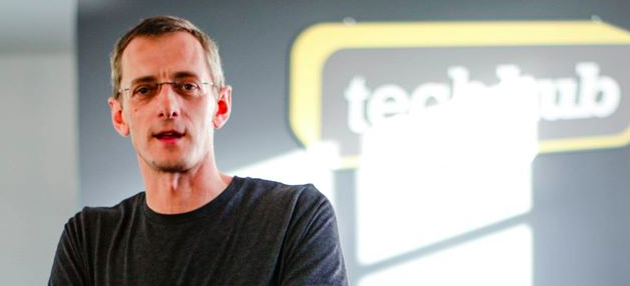Latvian Startup Tax Scheme Explained: How Will it Work and Who’s Behind It
2016
Oct 11
Oct 11

The Latvian government has recently signed off a flat startup tax scheme that is expected to lessen the tax burden for startups. Andris Berzins, the co-founder of TechHub Riga, an advisor to numerous Latvian and international startups, and a star of Latvian startup ecosystem, explains how the scheme would work and how Latvian policy makers see startup affairs.
According to Andris, the plan is that startups will have to go through a qualification process, and if they qualify, they will be able to use one of two social tax options:
1. A flat rate startup tax fixed at 252 euros per month (initially, tied to minimum wage calculations), which means a startup can pay any salary (in practice up to about 4000 euros per month) and pay the flat rate tax to get the employee very basic minimum social tax coverage. Plus no income tax for the employee or corporate income tax for the startup.
2. A version of the “highly qualified employee” program for startups – this requires qualification by individual employee, but in this case the government would essentially cover all the social insurance and taxation for the employee to receive full social benefits, the employer just paying the net wage.
The government has approved this scheme, and now it is going to be debated in Parliament together with the 2017 budget documents.
So who has been advocating for this novelty? When did this initiative start and how challenging was its way towards current situation?
Andris: The Latvian Startup Association has worked with the Ministry of Economics for some time to design the best possible program to provide the broadest possible benefit. The initial program has been narrowed in scope somewhat, with the requirements including a minimum of 30000 euros of third party investment by a qualifying early stage venture capital firm. This means bootstrapped and angel-funded startups are not initially included, but the goal is to get this program going and then to expand and modify it as we see practical opportunities and results.
What were the main arguments for and against this flat tax by the main stakeholders?
Andris: The arguments for are straightforward – a recognition that technology startups have the potential to generate significant economic growth opportunities for the country and as “employee cost heavy” companies, they are disproportionately hindered by the social tax structure. Some local companies and associations have voiced opposition, primarily on the basis of “competition for employees”. The Association thinks this is misunderstanding the nature of the competition, because usually employees themselves decide whether they want to work for startups (which are inherently much higher risk opportunities) or larger more established companies – the tax rate has little to do with that decision.
Do Latvian lawmakers see startup-friendly environment as a priority?
Andris: Yes, there is a clear recognition on the part of the government that this is a priority. In the discussions in the Cabinet of Ministers, the Prime Minister clearly set the tone by emphasising the importance of supporting this part of the economy. The Startup Association is engaged in an on-going process of educating the government and deputies in Parliament on why this is important. And so more initiatives are coming for sure!
